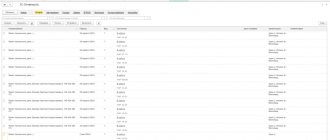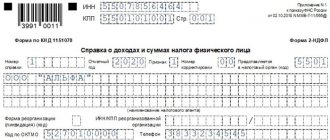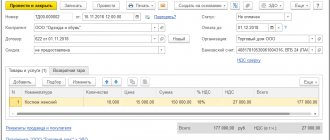On January 1, 2021, the write-off of some debts of individuals that were recognized as hopeless for collection began. The tax amnesty bill was developed and adopted in record time. The President's initiative was voiced at a press conference on December 14, 2021, and just two weeks later, Law No. 436-FZ was officially published.
Tax amnesty 2021 for individuals / Law on “forgiveness” of tax debts
According to the Federal Tax Service, as of January 1, 2015, more than 20 million citizens had arrears on property taxes and unsettled debt on penalties totaling over 103 billion rubles. Although some of these obligations were repaid in subsequent periods, today their size still exceeds 40 billion rubles.
Russian President Vladimir Putin announced a tax amnesty for individuals and individual entrepreneurs at his press conference on December 14, 2017, proposing to release debtors from accumulated payments without unnecessary bureaucratic formalities. The corresponding bill was developed in record time, and on December 29, the last working day of 2021, Law No. 436-FZ was already published.
Other categories of citizens
Individual entrepreneurs and individuals who previously conducted business activities, as well as notaries, lawyers and other persons previously engaged in or currently engaged in frequent practice, can write off existing debts.
In these cases, only amounts for insurance premiums that were generated during the billing period before January 1, 2021 are subject to write-off. And only in a certain amount, which is calculated by multiplying eight times the minimum wage.
Where are the most expensive new buildings in the Moscow region?
Tax debt can be written off only after submitting documents from the Russian Pension Fund.
What taxes will the 2021 tax amnesty for individuals cover?
Law No. 436-FZ limits the period for which tax debts of Russians are written off. The amnesty covers arrears that arose before January 1, 2015 and have not yet been repaid, as well as penalties accrued on this arrears that were not paid at the time the tax authorities decided to write them off. Debts incurred later than 01/01/2015 are subject to payment.
It is immediately necessary to clarify which debts the law on tax amnesty 2017 for individuals does not apply to: major repairs (unpaid contributions for it), outstanding loans, alimony, utility payments, etc. These obligations of citizens do not relate to tax obligations, so this amnesty will not bring anyone relief from them.
Taxes for which debts are subject to “forgiveness” under the tax amnesty for individuals:
- transport tax,
- property tax of citizens,
- land tax.
Tax authorities calculate property taxes for individuals themselves, and then, no less than a month before the end of the deadlines established for payment, send out notifications to taxpayers. The deadline for payments for property taxes is December 1 of the year following the reporting year. Based on these deadlines, it follows that in fact, the 2018 tax amnesty for individuals will affect transport tax, land tax and property tax in terms of overdue obligations for 2013 and earlier.
All individual debtors are subject to amnesty, regardless of their financial condition and the amount of accumulated debt, as well as the reasons why this debt arose.
What debts will be removed from individual entrepreneurs?
The amnesty will affect individual entrepreneurs to the greatest extent. Of all categories, the largest range of debts is subject to write-off, including both unpaid taxes on time and contributions to social insurance funds, as well as penalties on them. Additionally, the amnesty includes the termination of cases in the courts in these areas, the termination of office work through the activities of the bailiff service, the unblocking of bank accounts, and the cancellation of debits from the entrepreneur’s account. These actions are initiated by tax inspectors.
For taxes
Tax debts will be written off from an individual entrepreneur who falls under the amnesty:
- income tax (including all special regimes - tax regime, imputation, patent, personal income tax);
- VAT is written off, with the exception of import transactions - this case is not subject to amnesty, just like customs payments;
- transport and property taxes.
Also, debts on excise taxes and mineral extraction taxes will not be repaid.
The following debts are subject to write-off under the tax amnesty in 2021 for individual entrepreneurs:
- for non-payment of contributions to the Pension Fund, Compulsory Medical Insurance, Social Insurance Fund;
- penalties and fines on these contributions.
Unpaid fines and accrued penalties associated with failure to submit declarations on contributions to insurance funds falling within the established period of time are also subject to cancellation.
Tax amnesty 2021 for individuals. Not everything will be written off for personal income tax
Is there a tax amnesty for 2018 for individuals on personal income tax? In general, for income tax debt “forgiveness” is not provided, but paragraphs. "g" clause 2 art. 2 of Law No. 436-FZ supplements Article 217 of the Tax Code of the Russian Federation on income exempt from taxation with a new paragraph 72, according to which the amnesty applies only to the so-called “conditional income” of citizens arising under the following circumstances:
- taxable income was received during the period from January 1, 2015 to December 1, 2021,
- the tax agent did not withhold or transfer personal income tax from the citizen’s income to the budget, but provided a 2-NDFL certificate to the tax office, where he indicated information about his income.
This situation could arise when writing off a citizen’s debts to various organizations (banks, utilities, telephone operators, etc.), which essentially have nothing to withhold income tax from, but are required to reflect this “conditional” income of an individual in their reporting. Tax authorities, having received such a 2-NDFL certificate, assess tax on its basis, and there are about 3 million such debtors in Russia.
In this part of the 2021 tax amnesty for individuals, the text of Law No. 436-FZ contains restrictions - personal income tax calculated but not withheld from the following income is not subject to write-off:
- wages received by an individual, as well as remuneration for performing other duties, works, and provision of services;
- interest and dividends,
- material benefit (Article 212 of the Tax Code of the Russian Federation),
- income in kind, including gifts to a citizen from individual entrepreneurs and organizations (Article 211 of the Tax Code of the Russian Federation),
- prizes and winnings received by an individual in various events - competitions, games, etc.
After a direct line with the President of the Russian Federation V.V. On the eve of the New Year 2021, Federal Law No. 436FZ dated December 28, 2017 (hereinafter referred to as Federal Law No. 436FZ) was adopted. Certain provisions of this document introduce rules in accordance with which arrears of taxes, insurance premiums, as well as penalties and fines can be written off. Let's look at who and what specific debts will be forgiven in this article.
The draft Federal Law No. 436FZ was submitted to the State Duma of the Federal Assembly of the Russian Federation by the Government of the Russian Federation on October 31, 2021. When the bill was adopted in the second reading, its name was clarified and the concept was significantly changed. Initially, the bill introduced changes to the Tax Code of the Russian Federation, clarifying the rules for taxing profits of controlled foreign companies (CFCs). However, later it was supplemented by a number of provisions correcting both the norms of the Tax Code of the Russian Federation (regulating not only the corporate income tax, but also personal income tax, land tax, mineral extraction tax, gambling tax) and the norms of federal laws that are not acts of legislation on taxes and fees, in particular, laws on compulsory pension insurance and customs regulation.
Please note: Federal Law No. 436FZ came into force on December 29, 2021 (with the exception of its individual provisions).
So, what is forgiven for taxpayers?
Personal income tax: what income and debts can you forget about now?
Article 217 “Income not subject to taxation (exempt from taxation)” of the Tax Code of the Russian Federation has been supplemented with clause 72. Accordingly, the list of income not subject to personal income tax (exempt from taxation) has been increased.
We are talking about income received during a certain period - from January 1, 2015 to December 1, 2021. Thus, non-taxable personal income tax includes income received during the specified period of time (2015-2017).
But this does not mean that personal income tax will be forgiven for all taxpayers. Don't expect such indulgences. The amnesty applies only to income upon receipt of which personal income tax was not withheld by the tax agent. But the following income is not exempt:
– in the form of remuneration for the performance of labor or other duties, performance of work, provision of services;
– in the form of dividends and interest;
– in the form of material benefits, determined in accordance with Art. 212 Tax Code of the Russian Federation;
– in kind, determined in accordance with Art. 211 of the Tax Code of the Russian Federation, including gifts received by taxpayers from organizations or individual entrepreneurs;
– in the form of winnings and prizes received in competitions, games and other events.
At the same time, adjustments were made to clauses 6 and 7 of Art. 228 Tax Code of the Russian Federation.
It follows from the new norm that if the taxpayer received income during the period from January 1, 2015 to December 1, 2021, with the exception of the above, the tax agent did not withhold personal income tax from him, but on the basis of clause 5 of Art. 226 of the Tax Code of the Russian Federation sent a message about the impossibility of withholding personal income tax to the tax authority and the amount of personal income tax was not collected from this taxpayer, then this amount of personal income tax will actually be written off.
If personal income tax was paid or collected from the taxpayer before the entry into force of Federal Law No. 436FZ, then the new provisions will not apply to such income.
Since in this case in paragraph 72 of Art. 217 of the Tax Code of the Russian Federation, we are not talking about the amount of personal income tax, but about income; both the amount of personal income tax and penalties accrued on arrears will be written off.
Thus, the amnesty included the so-called conditional income - for example, loans written off to the borrower, utilities.
Transport, land and other taxes: for what period will debts be written off?
Federal Law No. 436FZ establishes that arrears and penalties accrued on said arrears, accrued on the date the tax authority makes the relevant decision, are considered uncollectible and are subject to write-off for the following taxes for individuals:
- transport tax;
- property tax;
- land tax.
But only arrears on these taxes incurred by individuals as of January 1, 2015 are written off.
In addition, tax arrears, arrears of penalties accrued on the said arrears, and arrears of fines, also accrued as of January 1, 2015 and listed as of the date of the relevant decision by the tax authority for individual entrepreneurs (which include many peasant farms), as well as for persons who lost this status before the date of such a decision. In this case we are talking about taxes, with the exception of the following:
– mineral extraction tax;
– excise taxes;
– taxes payable in connection with the movement of goods across the border of the Russian Federation.
The decision to write off the said arrears and debts on penalties and fines will be made by the tax authority without the participation of the taxpayer at the place of residence of the individual (location of real estate owned by the individual, vehicles, place of registration of an individual entrepreneur) based on information about the amounts of arrears and debts on penalties , fines.
This decision is drawn up in any form and must contain the last name, first name, patronymic, TIN of the individual (individual entrepreneur), information about the amount of arrears, debt on penalties and fines to be written off.
Thus, all considered debts will be written off from individuals and individual entrepreneurs (both current and former) automatically; there is no need to come to the tax authority and write any statements, or submit documents.
At first glance, why is it necessary to write off the arrears of taxes, penalties and fines accrued on January 1, 2015, if on January 1, 2021, the statute of limitations will have passed - three years? As usual, not everything in tax law is clear.
According to the position of the Ministry of Finance of the Russian Federation, the Tax Code of the Russian Federation has not established a general statute of limitations for identifying and collecting arrears, as well as debt for the corresponding penalties and fines. Arrears can be identified by the tax authority, for example, during tax audits, when carrying out other tax control measures, or when conducting a joint reconciliation of calculations for taxes and fees.
Articles 88, 89, 100 and 101 of the Tax Code of the Russian Federation establish the deadlines for conducting tax audits, the periods that can be covered by a tax audit, the deadlines for processing the results of tax audits and making decisions based on the materials of tax audits.
According to paragraph 3 of Art. 2 of the Civil Code of the Russian Federation, civil legislation does not apply to property relations based on administrative or other power subordination of one party to the other, including tax relations, unless otherwise provided by law.
The legislation on taxes and fees does not provide for the distribution of the provisions established by Art. 196 of the Civil Code of the Russian Federation with a general limitation period of three years in relation to the identification of arrears by the tax authority (Letters of the Ministry of Finance of the Russian Federation dated 02/11/2010 No. 030207/1-57, dated 03/17/2011 No. 030208/27).
Accordingly, if a taxpayer, in the presence of a debt with an expired statute of limitations and paid current taxes and insurance contributions, wants to receive a certificate of fulfillment of the obligation to pay taxes, fees, penalties, fines, interest, then the certificate will record “has an unfulfilled obligation to pay taxes , fees, penalties, fines, interest payable in accordance with the legislation on taxes and fees." In this case, the appendix to such a certificate will indicate the codes of the Federal Tax Service inspections, according to which the applicant has an unfulfilled obligation. And this circumstance for agricultural organizations is the basis for not receiving subsidies from the budget, therefore, if there is still a debt, it is very important to write it off, although many farms have already paid the outstanding amounts of debt, which we wrote about in the previous issue of our magazine.
Therefore, you need to understand that in the case when individuals and individual entrepreneurs voluntarily paid the debts on these taxes that existed on January 1, 2015, or when the arrears were collected under a writ of execution, they are not subject to return from the budget. What is paid is paid.
The same individuals and individual entrepreneurs against whom enforcement proceedings have been initiated for arrears as of January 1, 2015, need to obtain from the tax authority a decision to write off the said arrears and arrears of penalties and fines and submit it to the bailiff service to terminate the enforcement proceedings. There is no point in expecting this to happen automatically. Based on this decision, the bailiffs must stop collections under the writ of execution. Moreover, no one will write off the performance fee.
Insurance premiums: how will the debt be written off?
From January 1, 2021, the administration of insurance premiums was transferred to the tax service, which divides insurance premiums and arrears on them into two parts.
Clarification of the current procedure for interaction between the Pension Fund and the Social Insurance Fund with tax authorities
According to the general rule established by Art. 4 of Federal Law No. 243FZ dated 03.07.2016, in the event that tax authorities lose the ability to recover the arrears of insurance premiums and debts on the corresponding penalties and fines transferred to them by the Pension Fund of the Russian Federation and the Social Insurance Fund, as well as the amounts of insurance premiums and penalties and fines additionally accrued based on the results of inspections carried out for settlement (reporting) periods that expired before the designated date, the specified arrears and debts are recognized as hopeless for collection and are written off by the tax authorities in the cases and in the manner established by Art. 59 of the Tax Code of the Russian Federation, as well as in the event of exclusion of a legal entity that has ceased its activities from the Unified State Register of Legal Entities by decision of the registering authority.
From January 29, 2021, this procedure was supplemented by a rule according to which the named insurance premiums (arrears, arrears of penalties and fines) due to the expiration of the established period for their collection in the period from January 1, 2021 to the date of signing the acceptance certificate are recognized as uncollectible for collection and are written off by the tax authority at the location of the organization (location of separate divisions of the organization) or at the place of residence of an individual (place of registration of an individual entrepreneur). The write-off procedure will be approved by the Federal Tax Service. It’s nice, but it’s too late, as noted above - many farms have already paid the disputed arrears.
This rule applies to arrears and debts in respect of which, as of December 29, 2021, a court act has not been adopted, according to which the tax authority loses the opportunity to collect arrears, arrears of penalties and fines due to the expiration of the established period for their collection, including not a ruling was made to refuse to restore the missed deadline for filing an application to the court for the collection of arrears, arrears of penalties and fines.
This rule does not apply to paid (collected, written off) arrears and debts on penalties and fines before the specified date, and also does not apply to the corresponding arrears and debts on penalties and fines specified in Art. 11 of Federal Law No. 436FZ.
Insurance premiums for individual entrepreneurs
On January 29, 2021, Art. 11 of Federal Law No. 436FZ, according to which arrears of insurance contributions to state extra-budgetary funds of the Russian Federation for settlement (reporting) periods expired before January 1, 2021 are recognized as uncollectible and subject to write-off in the amount determined in accordance with clause 11 of Art. 14 of Federal Law No. 212FZ of July 24, 2009, debt for the corresponding penalties and fines accruing to individual entrepreneurs, as well as to persons who, on the date of writing off the corresponding amounts, lost their status.
In this case, we are talking about insurance premiums paid by individual entrepreneurs for themselves to the Pension Fund of the Russian Federation, but not all of them, but only those that were accrued in the maximum amount (based on 8 times the minimum wage) in case of failure to submit tax reports.
Debts on the maximum accrued insurance premiums to the Pension Fund of the Russian Federation will be written off for individual entrepreneurs who did not submit any reports if the amounts of insurance premiums were not paid or collected by the Pension Fund of Russia or the tax authorities. As a rule, these are entrepreneurs who registered, but did not actually conduct business activities.
Moreover, this procedure also applies to those entrepreneurs who have ceased their status.
Individual entrepreneurs who have submitted tax reporting required by the Tax Code of the Russian Federation and have arrears in insurance premiums for themselves are not exempt from the obligation to pay insurance premiums in full.
As a result, let’s go over it again: what arrears of taxes and insurance contributions will be amnestied in 2021?
The following taxes and insurance contributions will be written off:
– the amount of personal income tax and penalties on “conditional income” received from January 1, 2015 to December 1, 2021, from which tax was not withheld;
– arrears and debt on penalties of individuals for transport and land taxes, as well as property tax, formed as of January 1, 2015;
– tax arrears and arrears of penalties, also accrued as of January 1, 2015 and registered as of the date of the relevant decision by the tax authority for individual entrepreneurs, as well as for persons who lost this status before the date of such a decision. In this case, we are talking about taxes, with the exception of mineral extraction tax, excise taxes and taxes payable in connection with the movement of goods across the border of the Russian Federation;
– debts on accrued maximum amount (based on 8 times the minimum wage) insurance contributions to the Pension Fund of the Russian Federation for individual entrepreneurs who did not submit tax returns. Moreover, this procedure also applies to those entrepreneurs who have lost their status.
Tax amnesty 2021 for individuals. How to write off debt?
Taxpayers can find out about the presence of debt by contacting directly their tax office at their place of residence, or using the online service on the website of the Federal Tax Service of the Russian Federation (you will need a qualified electronic signature or an account on the State Services portal), that is, in your Personal Account.
Having discovered a debt that falls under the law on tax amnesty for individuals, there is no need to contact the tax office with an application or submit any documents: the Federal Tax Service itself, unilaterally, recognizes it as hopeless for collection and will decide to write it off. The Federal Tax Service is not obliged to notify the taxpayer that the debt has been “forgiven”, so information about whether the arrears and penalties have been written off must be requested from the tax authorities yourself (or, again, look at the records in your Personal Account and check whether the debts have been written off).
If tax debts and penalties accruing to a citizen as of January 1, 2015 were repaid by him or collected from him before Law No. 436-FZ came into force, the 2017 tax amnesty for individuals does not apply to these amounts, and a refund They are not subject to budget funding.
Source of material Tax amnesty 2021 for individuals
Who will write off debts and when?
The 2018 debt amnesty involves the most simplified write-off procedure, which will be carried out by the tax service at the place of registration of the individual. No applications or certificates will be required from the citizen. The procedure will be carried out automatically, without his participation.
The adopted law does not provide for obligations on the part of the tax authorities to notify about the debt being written off. There is also no specific time frame for the procedure. Therefore, in order to find out whether a write-off has been carried out, each citizen can independently submit a corresponding request to the tax authority that conducts its direct activities at the place of registration of the individual.
In this way, the goal set by the President of the Russian Federation V.V. Putin will be implemented. task: to free citizens from accumulated debts, which were formed for the most part due to circumstances beyond the control of the person himself, and to do this in the most debureaucratic way possible, without forcing debtors to contact the tax authorities.






